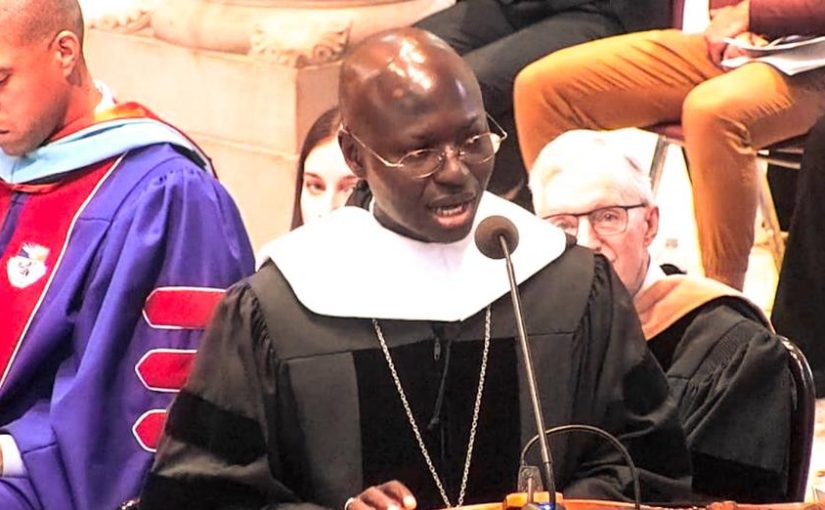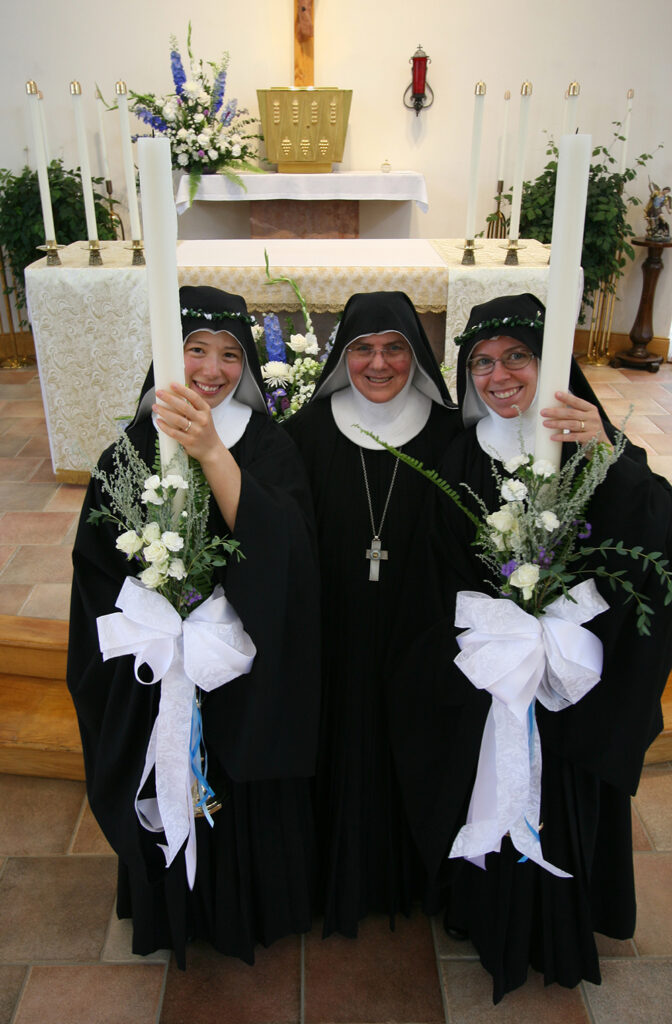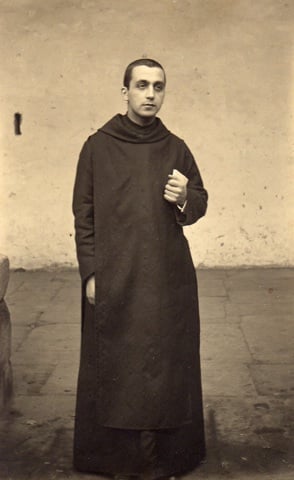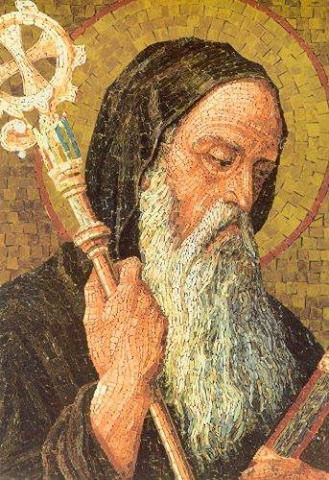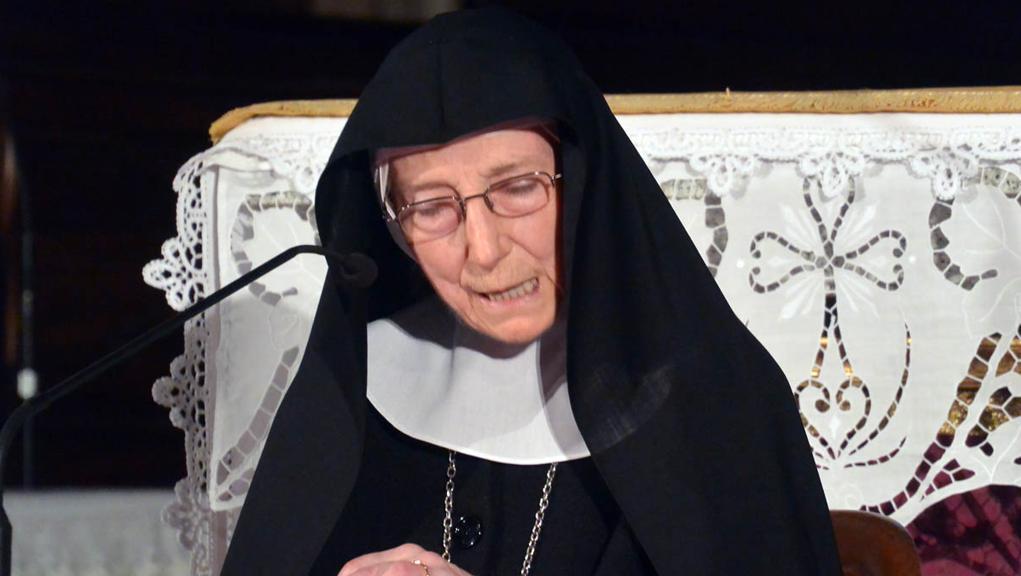 What follows is a general listing of various religious orders who admitted new members, professed vows and/or ordained. The purpose is to show how the Lord is working (or not) in many of the communities. Some communities are clearly alive and living the charism of their religious group; and it is equally clear that some groups are dying.
What follows is a general listing of various religious orders who admitted new members, professed vows and/or ordained. The purpose is to show how the Lord is working (or not) in many of the communities. Some communities are clearly alive and living the charism of their religious group; and it is equally clear that some groups are dying.
Alexian Brothers
3 clothed in the habit
6 renew temporary vows
Basilian Salvatorian Order, Methuen, MA
1 professed temporary vows
New Skete Monks, Cambridge, NY
1 clothed in the habit
New Skete Nuns, Cambridge, NY
1 clothed in the habit
Christ the Bridegroom Monastery, Burton, OH (Byzantine Catholic nuns)
1 professed life vows
Missionaries of the Holy Apostles, Cromwell, CT
1 admitted to postulancy
2 ordained deacon
Franciscan Handmaids of Mary
1 professed temporary
Franciscan Friars of the Renewal
8 admitted to postulancy
8 clothed in the habit
4 profess temporary vows
2 profess perpetual vows
1 ordained deacon
4 ordained priest
Franciscan Sisters of the Renewal
3 clothed with the habit
Capuchin Friars, St Mary Province, NY
6 men renew temporary vows
Cistercian Abbey of Our Lady of Dallas
2 clothed in the habit
1 professed temporary vows
1 solemn vows
1 ordained deacon
Holy Cross Abbey —OCSO, Berryville, VA
1 admitted postulancy
Christ in the Desert Abbey, Abiquiu, NM
7 clothed in the habit
2 professed simple vows
3 renewed vows
12 solemn vows
1 ordained deacon
Our Lady of the Desert, Blanco, NM
2 professed final vows
1 professed simple vows
1 admitted to postulancy
Mount Saviour Monastery, Pine City, NY
2 admitted to postulancy
1 clothed in the habit
1 professed simple vows
St Scholastica Priory, Petersham, MA
3 clothed in the habit
Monastery of the Holy Cross, Chicago
1 ordained to diaconate
St Meinrad Archabbey, St Meinrad, IN
1 clothed in the habit
2 professed simple vows
1 professed solemn vows
1 ordained priest
Subiaco Abbey, Subiaco, AR
2 ordained priests
Marmion Abbey, Aurora, IL
1 clothed in the habit
2 professed simple vows
1 ordained priest
Mount Angel Abbey, Mt Angel, OR
2 clothed in the habit
4 professed simple vows
3 professed solemn vows
St Joseph Abbey, Covington, LA
2 clothed in the habit
Conception Abbey, Conception, MO
3 clothed in the habit
St Vincent Archabbey, Latrobe, PA
4 clothed in the habit
4 professed simple vows
2 professed solemn vows
2 ordained priest
St Bernard Abbey, Cullman, AL
3 clothed in the habit
3 professed solemn vows
1 ordained priest
Mary, Help of Christians Abbey, Belmont, NC
1 admitted to postulancy
1 clothed in the habit
1 professed solemn vows
Mary, Mother of the Church Abbey, Richmond, VA
1 admitted to postulancy
Assumption Abbey, Richardton, ND
1 professed simple vows
St Mary’s Abbey, Morristown, NJ
1 clothed in the habit
1 professed simple vows
St Gregory’s Abbey, Shawnee, OK
1 admitted to postulancy
St Anselm Abbey, Manchester, NH
1 admitted to postulancy
3 clothed in the habit
1 professed simple vows
1 professed solemn vows
St Leo Abbey, St Leo, FL
1 professed simple vows
1 professed solemn vows
St Procopius Abbey, Lisle, IL
1 professed simple vows
St John’s Abbey, Collegeville, MN
1 professed simple vows
1 clothed in the habit
St Andrew Abbey, Cleveland, OH
1 clothed in the habit
1 ordained deacon
1 ordained priest
St Benedict’s Abbey, Atchison, KS
2 admitted to postulancy
2 clothed in the habit
2 professed simple vows
1 professed solemn vows
2 ordained deacon
Newark Abbey, Newark, NJ
1 admitted to postulancy
1 professed simple vows
St Martin’s Abbey, Lacey, WA
1 admitted to postulancy
St Anselm Abbey, Washington, DC
1 ordained deacon
St Gregory the Great Abbey, Portsmouth, RI
1 professed simple vows
Abbey of Regina Laudis, Bethlehem, CT
1 clothed in the habit
others in formation
3 given the Consecration of Virgins
Abbey of Our Lady of Ephesus, Gower, MO
10 in the novitiate
8 admitted to postulancy
5 junior professed
Immaculate Heart of Mary Monastery, Westfield, VT
1 professed simple vows (an extern sister)
Glencairn Abbey, Ireland (Trappistines)
2 postulants admitted
2 professed solemn vows
Tautra Mariakloster, Norway (Trappistines)
2 professed simple vows
Mount Saint Mary Abbey, Wrentham, MA (Trappistines)
3 admitted to postulancy
2 professed simple vows
1 professed solemn vows
Order of Preachers —Province of St. Joseph
16 clothed with the habit
9 professed simple vows
11 professed solemn vows
9 ordained priest
6 ordained deacon
Order of Preachers —Province of St. Albert the Great
1 professed simple vows
1 professed solemn vows
Our Lady of Grace Monastery —Order of Preachers, North Guilford, CT
1 admitted to postulancy, then novitiate
1 professed simple vows
Dominican Sisters of Hawthorne, Hawthorne, NY
2 clothed in the habit
2 renewed their vows
Dominicans of the Immaculate Conception, Chicago, IL
1 admitted to postulancy
Dominican Sisters of Mary, Mother of the Eucharist, Ann Arbor, MI
12 clothed in the habit
6 professed simple vows
7 professed perpetual vows
Dominican Missionaries for the Deaf Apostolate, New Britain, CT
3 admitted to postulancy
4 clothed in the habit
1 final profession
1 ordained priest
Society of Jesus
40 entered the Provinces in the USA, Canada, and Haiti
27 ordained priests for the States, Canada and Haiti
26 professed simple perpetual vows for the USA & Canada
Apostles of the Sacred Heart of Jesus, Hamden, CT
4 admitted to postulancy
1 clothed in the habit
3 professed simple vows
5 renew vows
1 professed perpetual vows
Sisters of Life
6 clothed in the habit
4 renewed vows
7 professed simple vows
8 professed perpetual vows
Maryknoll Sisters
4 professed perpetual vows
Congregation of Norbertine Sisters, California
2 admitted to postulancy
2 professed simple vows
Abbey of Santa Maria de la Vid –Norbertines
1 clothed in the habit
St Norbert Abbey, Norbertines, DePere, WI
1 clothed in the habit
2 professed simple vows
1 professed solemn vows
1 ordained deacon
1 ordained priest
Abbey of Saint Michael, Norbertines, CA
1 ordained priest
? enter the novitiate
Legion of Christ
7 professed simple vows
11 clothed with the habit
9 to be ordained to priesthood scheduled for May 4, 2019
Order of Virgins
several made their consecration as Virgins in particular dioceses in the USA
